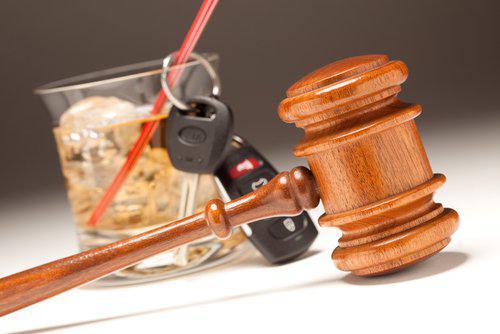Wisconsin Legislature Considers OWI Five Strikes Law
 Wisconsin has something of a national reputation for being lenient on people charged with OWIs. In fact, Wisconsin is the only state that still treats a first-time OWI offense as a traffic violation rather than a criminal charge. Yet, that reputation for leniency may be about to change. The Wisconsin state legislature is considering a new bill that would impose a lifetime driving ban on drivers who were convicted of five OWIs. Of course, several other bills designed to increase penalties on people convicted of repeat drunk driving offenses were introduced during the previous legislative session, and they did not pass.
Wisconsin has something of a national reputation for being lenient on people charged with OWIs. In fact, Wisconsin is the only state that still treats a first-time OWI offense as a traffic violation rather than a criminal charge. Yet, that reputation for leniency may be about to change. The Wisconsin state legislature is considering a new bill that would impose a lifetime driving ban on drivers who were convicted of five OWIs. Of course, several other bills designed to increase penalties on people convicted of repeat drunk driving offenses were introduced during the previous legislative session, and they did not pass.
The New Law's Effects
The new law would introduce a lifetime driver's license revocation for people who were convicted of five OWIs over the course of their lives. The idea behind the bill is that driving is a privilege rather than a right, and that people who cannot do it safely should not be allowed on the road. The law itself is based on a similar policy currently in place in New York, where people lose their licenses after three DUIs in 25 years or five over a lifetime.
However, some people have expressed concerns about actually imposing a lifetime ban on driving, feeling that it is too harsh. Such a ban would create serious hardships for people attempting to hold employment, which is especially troubling in light of the fact that repeated OWIs may correspond to the disease of alcohol addiction. In order to allay these concerns, the bill includes a potential route for people to get their licenses back, but even that route is fairly difficult. The bill would allow people who can keep their record clean for 10 years to apply for reinstatement of their licenses, provided they also complete a treatment course.
Concerns about the Law
Various groups have expressed some concerns over the bill beyond the fact that it may simply be too harsh. The main concern is that it actually focuses on the wrong way to go about solving the issue of OWIs. Some groups think that the law will not be effective because it does not actually include a way to prevent people from driving, and would prefer the legislature to start imposing more severe ignition interlock laws. Others are concerned that criminalizing OWIs like this is essentially criminalizing alcohol addiction, and feel that the government's resources would be better spent on identifying ways to help repeat OWI offenders overcome any issues with alcohol that they may have.
Regardless of whether this new bill becomes a law, OWIs in Wisconsin can still come with serious penalties, especially for repeat offenders. If you have recently been charged with an OWI, contact an experienced Milwaukee criminal defense attorney today to learn more about your rights.






